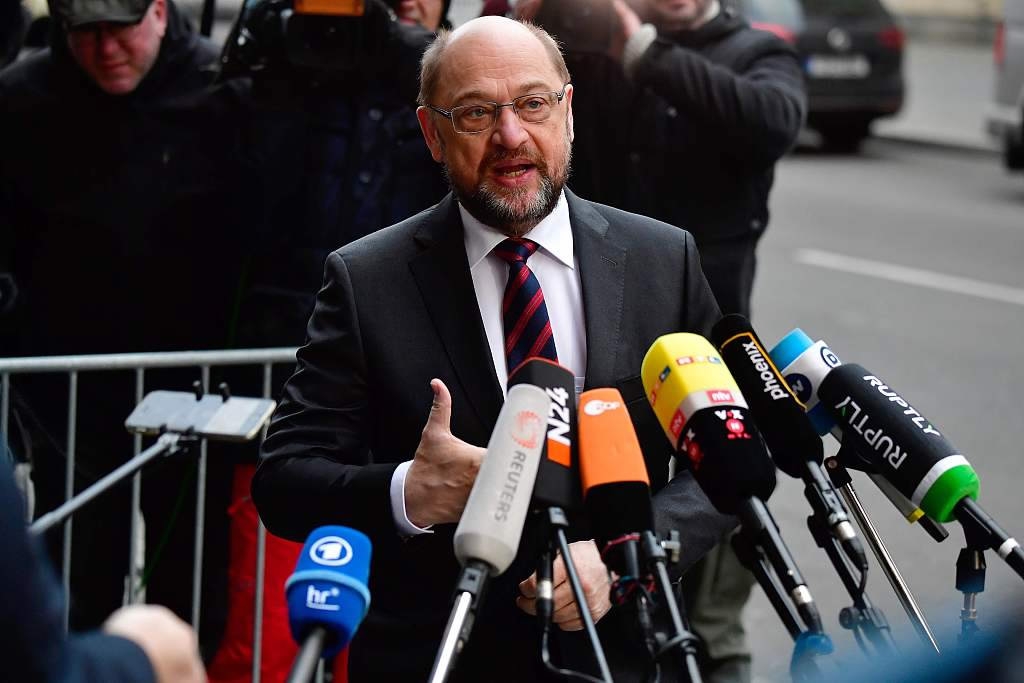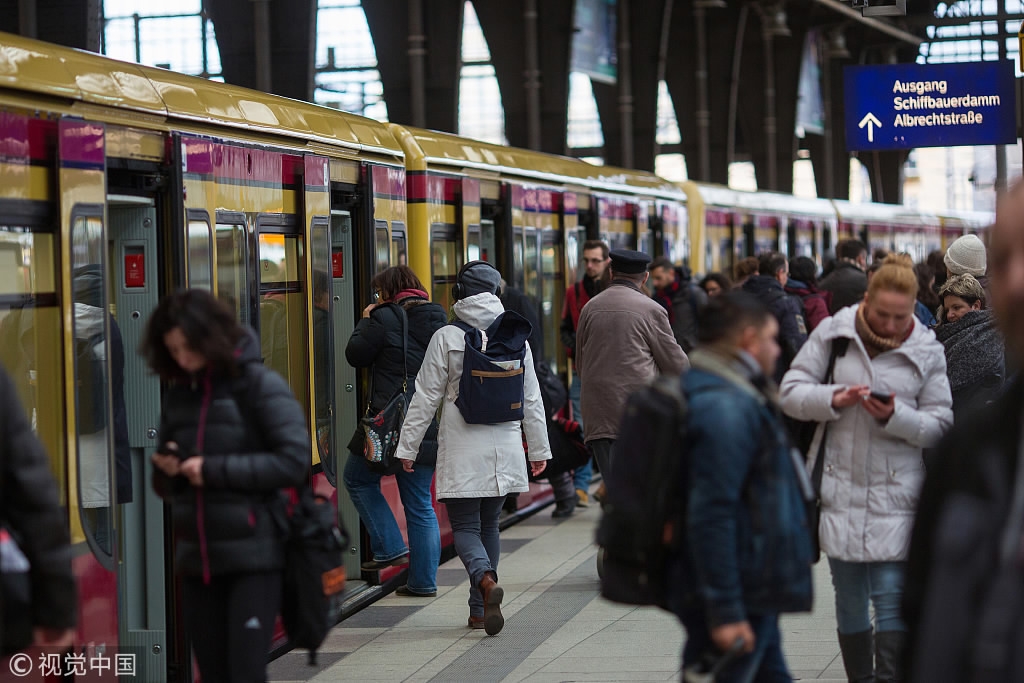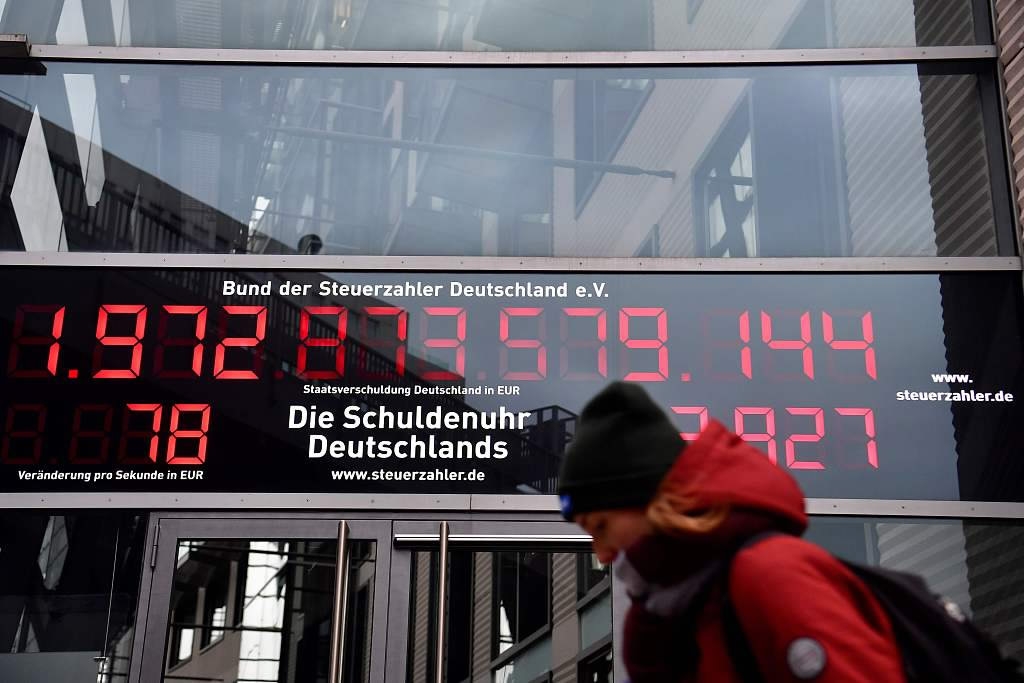
Politics
15:07, 11-Jan-2018
Hurdles ahead as Merkel makes last-ditch push for coalition
CGTN

German Chancellor Angela Merkel faces a battle to rescue her career as she embarks on last-ditch talks with the country's second biggest party to form a government.
Merkel's earlier attempt at forging a coalition with two smaller parties collapsed, so she is now placing her hopes on renewing an alliance with the Social Democrats (SPD).
Political analysts say the chancellor and her Bavarian allies Horst Seehofer and SPD chief Martin Schulz badly need the talks to succeed. But they have to overcome some thorny hurdles before advancing to formal coalition negotiations towards a government by spring.
September's inconclusive elections left Merkel without a majority and struggling to find partners to govern Europe's biggest economy.

Martin Schulz, chief of the SPD, speaks to reporters as he arrives for a meeting with the leaders of the governing conservative CDU/CSU union on Jan. 9 in Berlin. /VCG Photo
Martin Schulz, chief of the SPD, speaks to reporters as he arrives for a meeting with the leaders of the governing conservative CDU/CSU union on Jan. 9 in Berlin. /VCG Photo
Refugees
The elections saw a surge in support for the far-right AfD, an upstart anti-immigration party that capitalized on misgivings about the huge influx of more than a million asylum seekers who have arrived since 2015.
Anxious to stem the hemorrhage of support to the far right, the conservative wing of Merkel's CDU as well as her Bavarian allies the CSU are keen to cut back on arrivals.
The conservatives in particular want to extend a halt on family reunions for asylum seekers granted temporary refuge.
But during its electoral campaign, the SPD had promised to lift the suspension on family reunifications – which is due to expire at the end of March.

A poster of a participant at a rally in Berlin in July 2017 against Angela Merkel policies under the slogan "Merkel Must Go." /VCG Photo
A poster of a participant at a rally in Berlin in July 2017 against Angela Merkel policies under the slogan "Merkel Must Go." /VCG Photo
"We are talking about less than 70,000 people," said SPD chief Martin Schulz.
But the CSU in particular is wary about compromising on the issue as it is anxious to keep the AfD at bay in Bavaria where key regional elections will be held this autumn.
Europe
All three parties are pro-European and in favor of reforming the bloc but divided about how, especially when it comes to paying for it.
The Social Democrats back French President Emmanuel Macron's proposal of a European budget for common investments in the region.
But Merkel's party is skeptical, seeing it as a pooling of member states' debts or the transfer of German cash to troubled economies.

Commuters board an S-Bahn train at a railway station in Berlin on Jan. 5, /VCG Photo
Commuters board an S-Bahn train at a railway station in Berlin on Jan. 5, /VCG Photo
French proposals for a eurozone finance minister have been positively received all round, but the sides have differing views on the role such a regional minister would play.
The SPD believes the minister should work to end fiscal competition among member states, while the conservatives want someone who will police member states' debt levels – a task now performed by the European Commission, which is perceived as too lax by some.
Finance
The Social Democrats, who had campaigned for greater social justice, need to extract some key concessions on welfare if they are to get any deal with the conservatives approved by party rank and file.
The center-left party is pushing for more spending on education, social housing, infrastructure and health. And to fund that, it wants the top tax rate to be raised to 45 percent from the current 42 percent.

A picture taken on Jan. 5 in Berlin shows the so-called "debt clock" counter, ticking down at a rate of 78 euros per second, displayed outside the German federation of taxpayers headquarters. /VCG Photo
A picture taken on Jan. 5 in Berlin shows the so-called "debt clock" counter, ticking down at a rate of 78 euros per second, displayed outside the German federation of taxpayers headquarters. /VCG Photo
It wants to gradually phase out a solidarity tax – to help the former communist east catch up with the west – starting first with the lower and middle classes.
The conservatives baulk at tax hikes.
Instead, they want lower taxes and for the solidarity tax to be scrapped across the board. They also want funding increased for defense, something that the SPD opposes.
Further, the SPD wants to create a new universal medical insurance, an idea that has not found favor with Merkel.
Source(s): AFP

SITEMAP
Copyright © 2018 CGTN. Beijing ICP prepared NO.16065310-3
Copyright © 2018 CGTN. Beijing ICP prepared NO.16065310-3